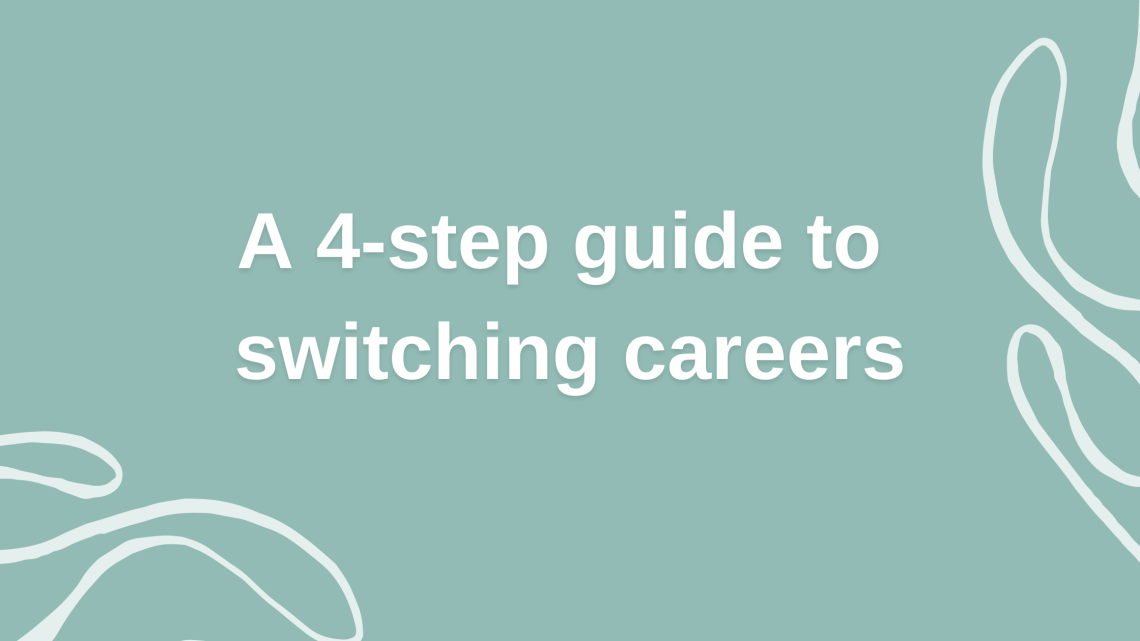
A 4-step guide to switching careers
A police officer turned baker. Or a shopkeeper turned lawyer. A zookeeper who traded his love for animals to become a chef. Those are all cases where people changed their profession to pursue their dream careers.
There’s a wide variety of reasons why people wish to change careers. In some cases, they become aware of their passions or bring up the courage to take their lives into their own hands later in life. In other cases, career changes come for more pragmatic reasons – out of the need for greater flexibility and a need for money, to name a few.
Before considering a career change, you should first review a few things, such as having a clear picture of your current situation, skills, and goals. You should also have an action plan to make a career switch a successful one.
That said, we decided to provide you with a few tips on how to make a career change and excel in your plans successfully.
Understand why you want to change your job.
Before you leap, make sure you know your motivations for a career change.
Maybe you’re burned out? Or you cannot advance your career anymore? Maybe you are just bored and cannot stand doing the same thing over and over again until the rest of your life?
What you need to do is to start thinking about life more broadly, and take time to understand what your desires and motivations are. Write down things that bug you the most, along with the solutions to these problems.
Furthermore, make sure to explore what your passions are. Maybe there’s something you enjoy doing outside of work that can prove to be a lucrative career.
Taking some time to think about everything will increase the chances of a smooth transition, allowing you to be more successful in your quest.
Focus on the research.
Once you have a clearer picture of the career you want to pursue, make sure to do your research before taking some action steps.
There are plenty of resources to find online; however, a better option would be to find someone already in the industry who can give you inside information. Ask about daily tasks, the competition in the market, the field growing, and a possibility for advancement, as it will allow you to make better decisions.
Evaluate your skills.
If you’re thinking about switching careers, you should think about transferable skills you possess to come in handy on your next job.
Transferable skills are the ones that can be useful to employers across sectors and industries. Most commonly, transferable skills include adaptability, organization, teamwork, and they can help you land your next job.
The next question that naturally imposes itself is how to include your transferable skills in a resume? There are a few sections we most commonly find them:
- Resume summary or objective
- Employment history descriptions
- Skills list
When it comes to putting your transferable skills in a resume’s summary, make sure to pick one skill you think is the most relevant, valuable, and important for you and for the job you’re applying. For instance, if your most valuable transferable skill is attention to detail, you can say: “Tenacious shop manager with more than 10 years using strong attention-to-detail skills to make stores more organized and sales teams more productive.”
In the employment history section, you can list the skills you used that proved to be most effective in your previous roles and can be transferred to another job outside of the industry, briefly explaining what you did to acquire them and what you accomplished. For instance, you might say, “Established a bonus program for sales teams, increasing the yearly revenue by 10 percent”.
Lastly, a skills list is also a great way to showcase the transferable skills you have. Since we’re sure you have a wide variety of transferable skills to brag about, in this section, you might want to pay attention to the job requirements and list the ones you think will be the most useful for that position.
Boost your CV.
When you got your facts together and decided a career change is something you truly need, it’s time to revamp your old CV. Different industries have different CV requirements, and it’s always a smart idea to look at some samples online.
We’d certainly advise you to use a hybrid resume template since it will allow you to prioritize the skills you have over the experience you lack in. A hybrid resume combines chronological and functional resume types, and it will allow you to shine during the application process.
What’s more, you don’t have to make a resume from scratch!
Applyya is an online resume builder with a wide variety of CV templates to choose from. All you have to do is to pick the template you like the most, insert your information, and download it to PDF for free. Once you’ve done this, an incredible journey can begin!
You May Also Like

How to create resume for free and land a perfect online teaching job
February 5, 2020
Here’s what you should know about Sabbatical leaves
October 30, 2021